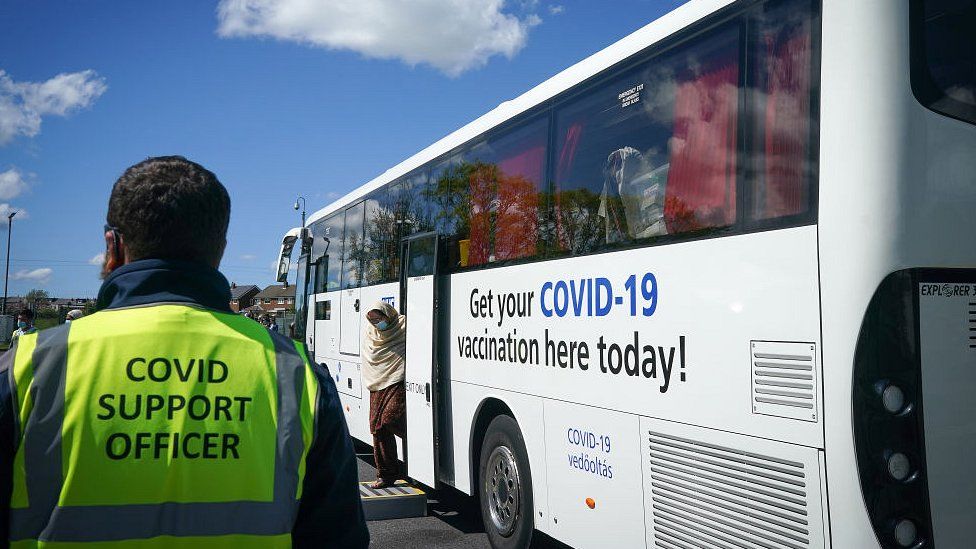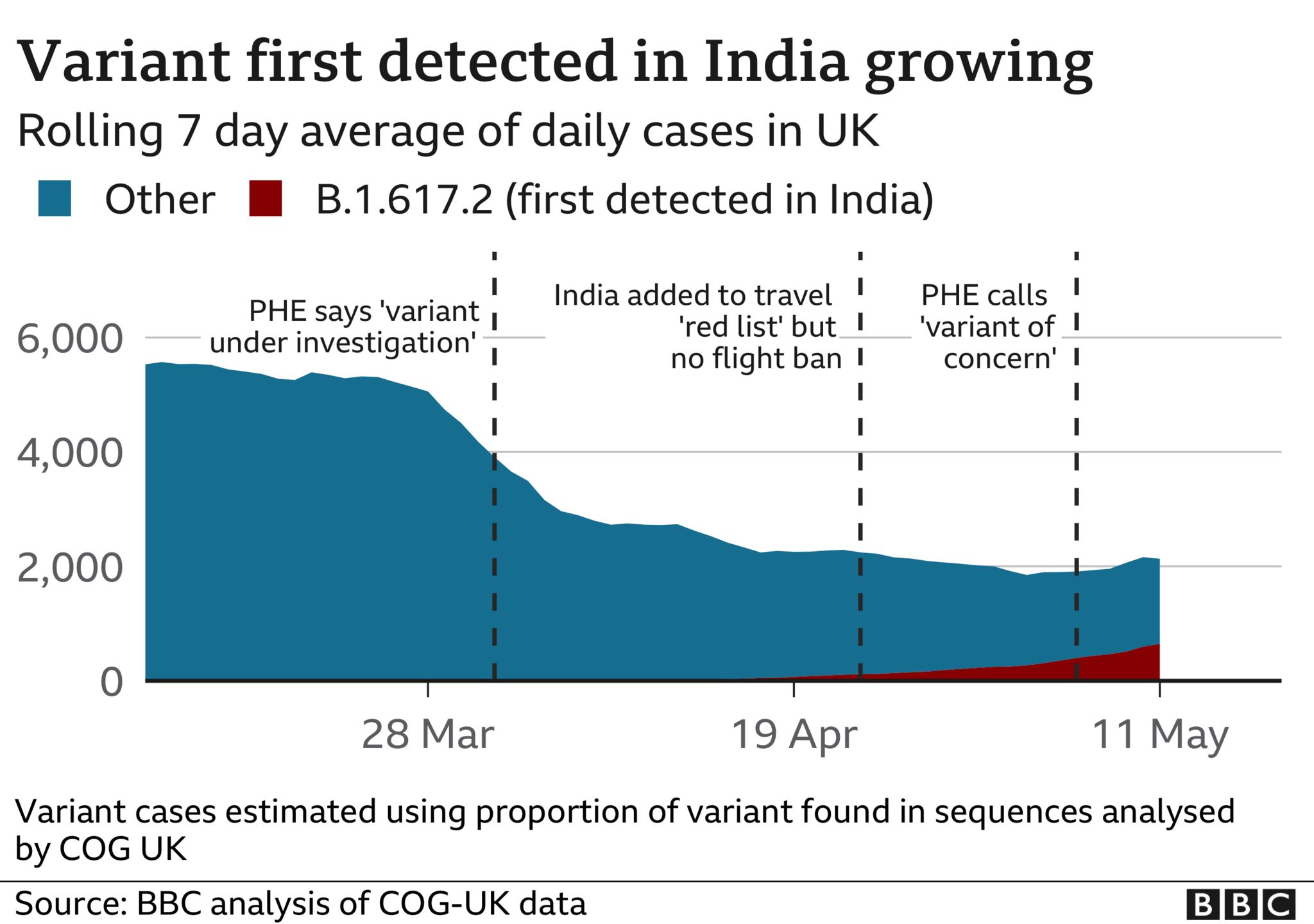The Indian variant is spreading in some parts of the country – how serious is it?

image copyrightGetty Images
Many new cases of Covid in parts of the UK are being blamed on what’s known as the Indian variant.
This is a particular version – or mutation – of the Covid virus, first spotted in India last October, which has since spread across a number of countries.
Viruses mutate all the time, producing different versions or variants of themselves.
Most of these mutations are insignificant, but some can make a virus more contagious.
In the UK it’s thought the variant first found in India – or rather a particular type of it known as B.1.617.2 – could be spreading more quickly than the Kent variant, which was responsible for the surge in cases over the winter.
There have been 5,647 cases of the B.1.617.2 variant detected in total in England, 383 in Scotland, 62 in Wales and 15 in Northern Ireland.
In some areas of England – including in Bolton, Blackburn, and Sefton in North-West England and Bedford, Chelmsford and Canterbury in the South-East – this version of the virus is causing the majority of infections.
In London it makes up the lion’s share of cases in Croydon, Hounslow and Hillingdon.
A surge in Glasgow – which has left the city unable to lift some lockdown restrictions – may also be driven by the variant.

In the worst-hit areas, in the two weeks to 15 May:
- 488 cases identified in Bolton, compared with 50 cases of the Kent variant
- 132 cases in Blackburn (vs 12)
- 100 in Bedford (vs 20)
- 72 in Sefton (vs 15)
However, just because it’s the most common strain in some places doesn’t mean there’s lots of it about.
In Croydon, for example, the variant accounts for 87% of the cases which were analysed for variants (genetically sequenced). But this amounts to only 14 individual infections in the past week, out of over 100 confirmed coronavirus cases.
In West Oxfordshire it was responsible for 100% of the authority’s four Covid cases analysed.
Not all cases are sequenced, but a higher proportion are in those areas with lots of the Indian variant, potentially skewing the figures.
While the variant is driving an increase in cases in Bolton, in pockets of London it appears to just be replacing the Kent variant but not leading to an increase in cases overall.
In parts of the country with very few cases, such as Yorkshire and south-west England, the majority of infections have been confined to people returning from India.
But in North-West England, which is most affected, only 7.5% of cases were in people who had travelled, which means the virus has spread further into the community.
It does appear to spread more easily than the Kent variant (B.1.1.7), which was behind the UK’s huge winter spike in infections.
Transmission rates for the Indian strain were roughly 50% higher than for the Kent version of the virus in April – just over 12% of contacts of people with the Indian variant went on to develop coronavirus, compared with 8% of contacts of people who had the Kent variant.
But some of that could be the behaviour of humans rather than the behaviour of the virus.
When a variant spreads faster than other types in circulation, it could be driven by the strain being more infectious, by differences in how close people get to their contacts, or by different vaccination rates.
For instance, it’s been pointed out some of the worst-affected areas have very low proportions of residents who are working from home.
A study by Public Health England (PHE) has found that the Pfizer and AstraZeneca vaccines are highly effective after two doses.
Two jabs of either vaccine give roughly as much protection against symptomatic disease from the Indian variant, as they do for the Kent one.
However, the vaccines were only 33% effective against the Indian variant three weeks after the first dose.
PHE say that not enough people have yet received the Moderna vaccine in the UK for it to be included in their research.
Despite fears over the Indian variant, most of the UK went ahead with easing restrictions on 17 May.
A close watch will be kept on the data before any decision is made about what happens on 21 June, when the next stage of easing is scheduled.
Many countries already have bans on people from the UK and elsewhere entering.
But we don’t yet know whether others will follow suit specifically in response to the variant from India.